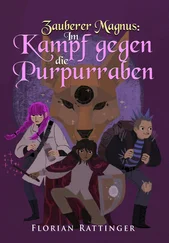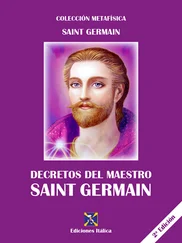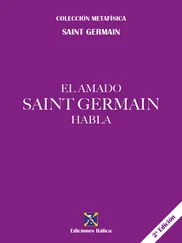Sylvie Germain - Magnus
Здесь есть возможность читать онлайн «Sylvie Germain - Magnus» весь текст электронной книги совершенно бесплатно (целиком полную версию без сокращений). В некоторых случаях можно слушать аудио, скачать через торрент в формате fb2 и присутствует краткое содержание. Год выпуска: 2008, Издательство: Dedalus Ltd, Жанр: Современная проза, на английском языке. Описание произведения, (предисловие) а так же отзывы посетителей доступны на портале библиотеки ЛибКат.
- Название:Magnus
- Автор:
- Издательство:Dedalus Ltd
- Жанр:
- Год:2008
- ISBN:нет данных
- Рейтинг книги:3 / 5. Голосов: 1
-
Избранное:Добавить в избранное
- Отзывы:
-
Ваша оценка:
- 60
- 1
- 2
- 3
- 4
- 5
Magnus: краткое содержание, описание и аннотация
Предлагаем к чтению аннотацию, описание, краткое содержание или предисловие (зависит от того, что написал сам автор книги «Magnus»). Если вы не нашли необходимую информацию о книге — напишите в комментариях, мы постараемся отыскать её.
Magnus — читать онлайн бесплатно полную книгу (весь текст) целиком
Ниже представлен текст книги, разбитый по страницам. Система сохранения места последней прочитанной страницы, позволяет с удобством читать онлайн бесплатно книгу «Magnus», без необходимости каждый раз заново искать на чём Вы остановились. Поставьте закладку, и сможете в любой момент перейти на страницу, на которой закончили чтение.
Интервал:
Закладка:
The beautiful passer-by is Mary Gleanerstones. She comes from San Francisco and is spending a few days in Veracruz, accompanying her husband on a business trip. She absolutely insists on introducing Adam to Terence, her husband, whom she was on her way to join at their hotel, and she invites him to have dinner with them.
The Gleanerstones are older than he is. Mary, who calls herself May, is about thirty, and her husband close to forty. His dark chestnut hair has gone completely white at the temples, and the whiteness of these two little wavy wisps soften his irregular-featured face. In the course of the evening Adam detects in Terence a discerning eye and delicacy of attention, ever alert behind his easy-going manner and sense of humour, and in May a mixture of toughness and passion, impatience and determination, pride and irony. With dark eyes, a very straight nose, strong widely-spaced cheekbones, her face is flawless, like a mask of ochre-coloured wood. She owes her complexion and her features to an Indian ancestress of the Omaha tribe who, she says, has declared herself after three generations, eclipsing with quiet insolence May’s other bloodlines, Hungarian, Scottish and Ukrainian.
Adam does more listening than talking, impressed by this couple so much more mature than he is, and above all who move in a world so different from his own: an active and open world where everything seems easy: money, travel, relationships, the art of conversation. He can tell they have a very close relationship, more like that of siblings than lovers, making their presence as straightforward as it is generous, and he enjoys their company. For the first time in his life he feels secure. However, he says nothing about the true reason for his having come to Veracruz, nothing of his German childhood. He has presented himself as an English student on holiday and he evades any questions about his family.
At the end of their meal May searches in her handbag and pulls out a book wrapped in a paper bag. ‘This is a novel by a Mexican writer that came out two or three years ago — someone spoke to me very enthusiastically about it,’ she explains. ‘I bought it today but my level of Spanish is much weaker than yours, so I’d like to give the book to you. When you’ve read it you can tell me whether it really is worth making the effort to tackle it in the original, as was suggested to me.’
To reinforce this reason for getting in touch again, Terence slipped his card into the bag, having written on the back of it the details of their hotel.
Back in his hotel room, Adam opens the book. It is a copy of Pedro Pàramo by Juan Rulfo. As it is already very late and he is feeling tired, he is content to leaf through the book and pick out odd sentences at random. But Juan Rulfo’s novel does not lend itself to idle skimming, it awakens Adam’s drowsy attention and keeps it riveted. He reads straight through to the end the story of Juan Preciado and his search for the father he has never known, a certain Pedro Pàramo, who ruled the village of Comala as a petty dictator, consumed with ambition and the taste for power. But Comala now is a forsaken village beyond the compass of time and life, baked white beneath a deadly sun — ‘ You’re on the earth’s burning coals there, in the very mouth of hell .’ For all is dead in Comala, and Rulfo’s tale is a strange polyphonic dirge, an interweaving of the stray plangent voices of ghosts.
Adam keeps reading and rereading the book to the point of exhaustion. Until he is not just reading any more but entering into the book, walking through the pages, through the streets of the deserted village. He walks in the footsteps of Juan Preciado, the son in search of his father, now dissipated in the burning dust of Comala on whose walls, the colour of bone, glance the voices of the deceased, continuing to speak in their absence, to dwell on memories of those wretched lives they have long been departing.
He walks in the footsteps of Juan Preciado, but following hard on the heels of the latter is a cohort of ghosts reduced to echoes, and these ghost voices resonate inside his own head.
Juan Preciado is his double, his guide through the ruins of memory, the labyrinth of forgetfulness. And Pedro Pàramo, the odious provincial caudillo, a brutal and arrogant man, is Clemens Dunkeltal’s projected shadow in Comala, a village to be found everywhere and nowhere, a haunting place of no precise location. A charnel-house village exuding echoes, cries and groans, a mirage village at the crossroads of the living and the dead, the real and the imagined.
Sequence
You’ll feel even hotter when we get to Comala. You’re on the earth’s burning coals there, in the very mouth of hell. They say a lot of those who die there and go to hell come back to fetch their blanket…
This town is filled with echoes. They sound as if they’re trapped inside the cavity in the walls or under the paving-stones. When you walk you sense them following in your footsteps. You hear rustlings. Laughter. Time-worn laughter, as though weary of laughing. And voices wasted through use. All this you hear. I think the day will come when these sounds die out.
Juan Rulfo, Pedro Pàramo
Fragment 11
It is barely light when Adam starts out. He leaves town with the book deep in his pocket. He sets off for Comala.
He strikes out westwards, at random, leaving the coast behind him. He passes cotton fields. He sees the sky turn rosy where it meets the orchards. He walks with his back to the sun. His shadow is still pale, unclear.
He strides across unknown territory, chasing a ghost. But whose? That of Pedro Pàramo, Felipe Gomez Herrara, Clemens Dunkeltal, Thea, or himself? He does not know any more. In any case, the ghost flees.
He is bound for Comala, for nowhere, for a meeting with himself. His progress is erratic, frantic. He is an angry pilgrim come to throttle the paternal ghost and that of the naive child he once was who loved his father. But the ghost keeps giving him the slip, defying him, wearing him out, and in the process his anger intensifies, distills. His shadow lengthens, darkens.
He knows his quest is absurd, doomed to failure, but he does not relent. He senses something developing. Something indefinable. Weird and yet powerful. Between him and this place. Between him and this moment on the fringes of time. And what is conspiring inside him unsettles his memory, looses its moorings, and gradually sends it into a spin. The spinning gets faster.
Thousands of images run backwards before his eyes, just as a dying man sees his entire past go flashing by.
The heat is intense. He has been walking for hours. His shadow has narrowed, condensed: a black puddle at the tip of his shoes. He has not slept and has eaten nothing since the day before. All of sudden he is drained of strength. He sits at the edge of a field on a bare slope. The sun beats down, as torrid as it is high in the sky. He stretches out on the ground, overcome with dizziness.
There he lies on the earth’s surface, in direct contact with the landmass of his father’s language-shroud, the language acid-bath that will dissolve forever the sickening remains of his love for that father. But no, Spanish is not the language of this land. It is not indigenous. It came from outside just a few centuries ago, imposed by force of arms. A more ancient language frets beneath the stones, the dust. The language of the vanquished, unyielding, intractable.
And slowly yet another sound becomes audible. It emanates from all around, from the earth and the air, from the stones and the grass. It is a harsh haunting song that soon swells, expands, vibrates.
The song assails the phantom-chaser’s spent body. It is the chorus of insects in the pulsing heat of noon. A multiple voice. Monotonous. Voracious. The broiling air squeals and sizzles. The ground emits faint stridulations, low hummings. The insects embroider the silence of the sun-sated earth with their stubborn little voices. On the surface of emptiness they attend to their tiny destiny. They score this incandescent time of day with vocal striations as though to leave a trace of their presence no one cares about, to prove to themselves they exist, and to enjoy as much as possible their short spell in this world. Song of euphoria, desolation and combativeness. Song of the living. Of beast and mankind.
Читать дальшеИнтервал:
Закладка:
Похожие книги на «Magnus»
Представляем Вашему вниманию похожие книги на «Magnus» списком для выбора. Мы отобрали схожую по названию и смыслу литературу в надежде предоставить читателям больше вариантов отыскать новые, интересные, ещё непрочитанные произведения.
Обсуждение, отзывы о книге «Magnus» и просто собственные мнения читателей. Оставьте ваши комментарии, напишите, что Вы думаете о произведении, его смысле или главных героях. Укажите что конкретно понравилось, а что нет, и почему Вы так считаете.












